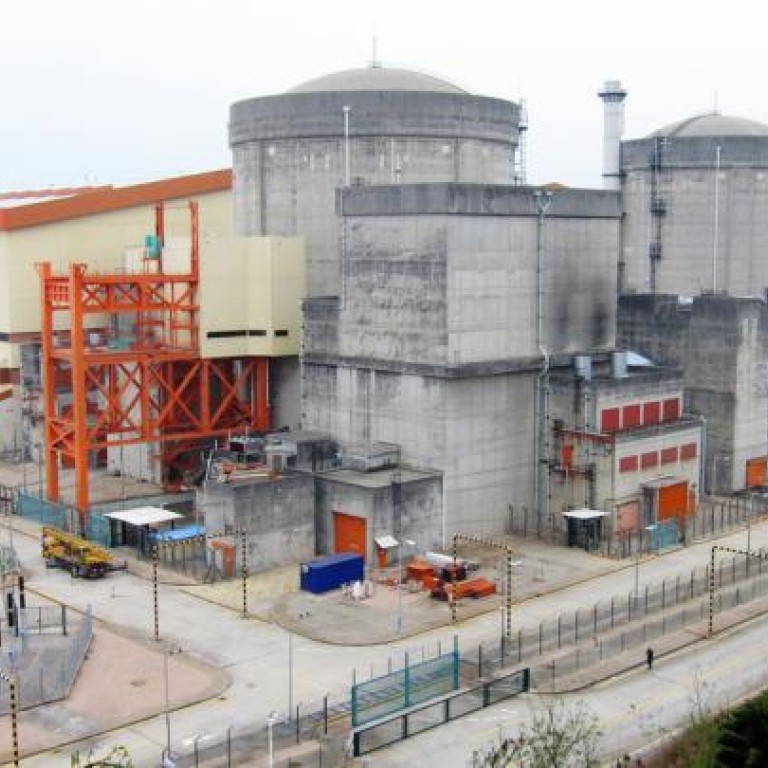
Hong Kong deserves role in nuclear reactor risk management, experts say
As a nuclear power consumer, the city should have a say in risk management at the facilities
Hong Kong should be more involved in the safety and risk management of the nuclear reactors in its vicinity, a group of nuclear specialists has urged.

"We might not be able to run these plants, but we can still offer ideas and solutions on how to minimise risks," Chieng said.
"As a big user of the nuclear energy, Hong Kong should have a say [on nuclear safety and risks management]."
China has 16 nuclear reactors, six of which are in Shenzhen, about 50 kilometres from Hong Kong's city centre.
The reactors are run by mainland operator Daya Bay Nuclear Power Operations and Management, although two of them in Daya Bay are partly owned by CLP Power from Hong Kong. About 70 per cent of electricity produced by the two plants is exported to Hong Kong.
Dr Luk Bing-lam, chairman of Hong Kong Nuclear Society, said the city should consider establishing an independent body similar to the French Institute for Radiological Protection and Nuclear Safety to assess plant risks.
While a central authority on nuclear safety was directly responsible for monitoring or regulating the reactors, Luk said a Hong Kong-based body overseeing nearby reactors could significantly bolster confidence.
"Hong Kong should actively participate in this area. It should not just choose to expand its nuclear energy imports, while staying away from the risks and safety issues," he said.
Luk said the city needed forward-looking risk analysis and this would require data on reactors' operations. He admitted obtaining the information would be difficult as two jurisdictions were involved. "Obtaining such data would require government involvement," Luk said.
Last April, Hong Kong held a two-day emergency drill to test the city's ability to respond to a nuclear accident.
Meanwhile, City University's engineering faculty will launch a new bachelor and master of science programme on nuclear and risk engineering.
It hopes to recruit about 30 to 40 students from the next academic year. Outstanding performers will be selected to study related courses for a year at the University of Cambridge.
Chieng said course graduates would have solid career prospects that were not limited to only nuclear safety management. Graduates could work on maintenance engineering for large corporations, or in research and development in areas involving nuclear radiation.
